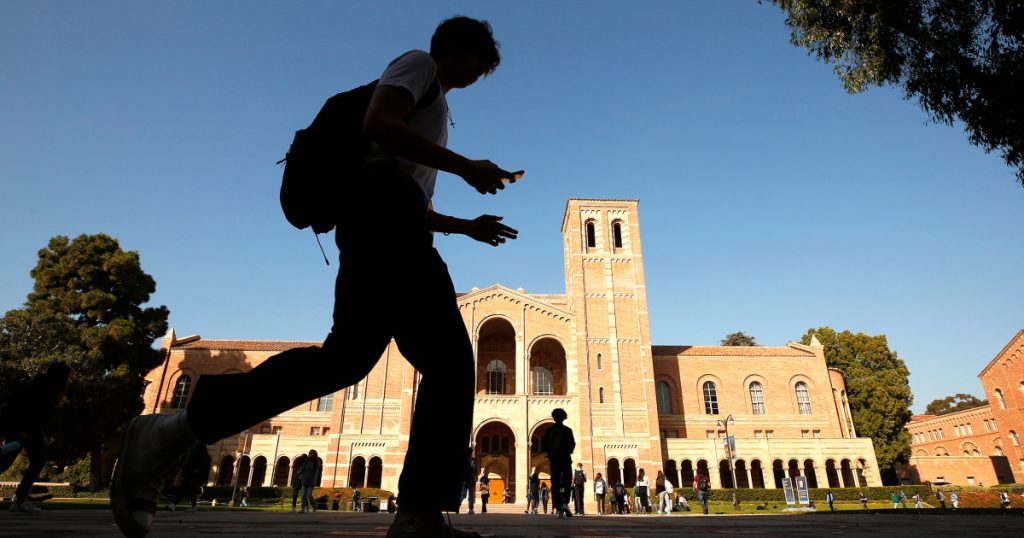Latinos have seen a substantial increase in college degree attainment over the past five years, with Hispanic students accounting for 79% of the overall 4% increase, according to a report released by Excelencia in Education, a nonprofit focused on improving Latino college completion. Despite these strides, Latinos still lag behind other groups in terms of degree attainment, with only 27% of Hispanics earning an associate degree or higher in the 2021-22 academic year compared to 44% of other Americans. Latinos also remain underrepresented in colleges and universities, highlighting the need to increase the number of Latinos earning college degrees to address the country’s workplace and labor goals.
Latinos are overwhelmingly first-generation college students, with many receiving financial aid but being cautious about taking out student loans. While nearly half of Latinos qualified for and received federal Pell Grants, only a quarter of Latino students took out federal student loans, representing one of the lowest borrowing rates among all ethnic and racial groups. The report also noted that Latinos have the highest labor participation rate of any group, with over two-thirds participating in the workforce in 2022, but are overrepresented in low-paying industries, further emphasizing the importance of increasing Latino college completion and degree attainment.
Where Latino students attend college is also significant, with Hispanic-Serving Institutions (HSIs) playing a crucial role in educating Latino students in the U.S. Despite making up just 20% of all colleges and universities, HSIs educate over 60% of Latino students. Excelencia’s analysis underscored the benefits of programs targeted at ensuring Latino student success in higher education, with colleges that have earned Excelencia’s Seal of Excelencia demonstrating higher graduation rates for Latino students compared to other educational institutions. These programs focus on helping Hispanic students enroll, stay, and complete college, contributing to higher success rates for Latino students.
Sarita Brown, co-founder and president of Excelencia in Education, highlighted the importance of increasing the number of Latinos earning college degrees to secure America’s bright future with the talents of Latinos. She emphasized the significance of institutional leaders joining a national network committed to accelerating Latino student success in higher education. By working together, these leaders can help ensure that Latino students have the support and resources needed to excel in college and beyond.
Overall, the report’s findings shed light on the progress that Latinos are making in terms of college degree attainment, as well as the challenges and disparities they continue to face. It underscores the need for continued efforts to increase Latino college completion rates, improve access to financial aid and support services, and address the systemic barriers that hinder Latino student success. With focused initiatives and programs aimed at ensuring Latino student success, colleges and universities can play a vital role in helping more Latinos earn college degrees and contribute to a more diverse and talented workforce in the future.


